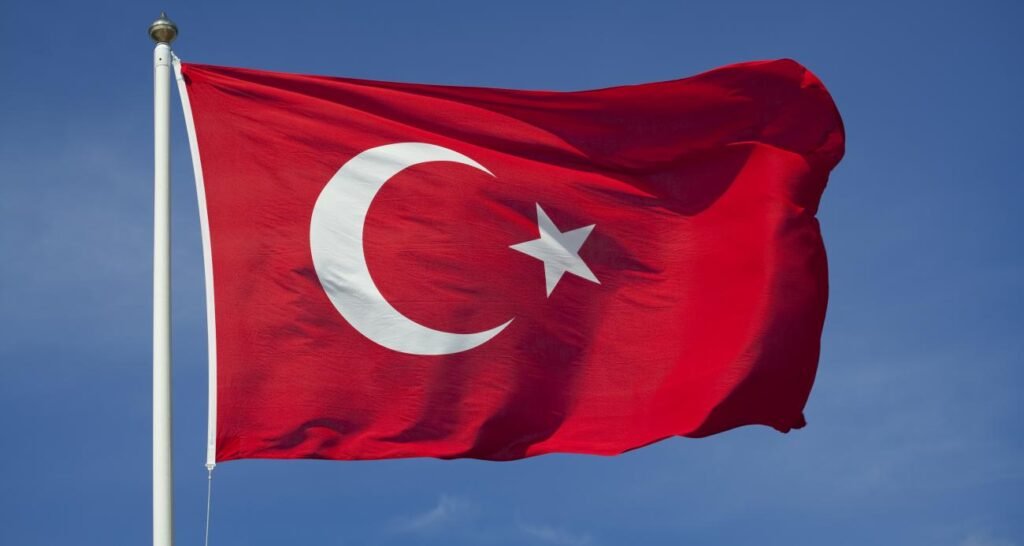Introduction to “Utanmaz Türklere”
utanmaz türklere Let’s start with the basics. “Utanmaz Türklere” is a Turkish phrase that translates roughly to “to the shameless Turks” or “about shameless Turks.” It’s a loaded term. The word “utanmaz” means shameless, and “Türklere” is the dative plural of “Türk,” referring to Turks in general. Put together, it’s not exactly a friendly phrase. It usually pops up in critical or even derogatory contexts, depending on who’s saying it, why they’re saying it, and what tone they’re using.
At its core, this phrase isn’t just about the literal translation. It taps into deep-seated social tensions, cultural misunderstandings, and sometimes, outright prejudice. Whether it’s found in online forums, political commentary, or even satire, “Utanmaz Türklere” tends to ignite strong reactions.
Why? Because identity utanmaz türklere matters. National pride matters. And no one likes being lumped into a category labeled “shameless.” But as with any provocative phrase, there’s more going on than meets the eye. It’s worth digging into the social, cultural, and historical context that gives this term its power.
The Cultural Weight of Being Called “Utanmaz”
In Turkish culture, “shame” (utanmak) is a serious thing. It’s tied to values like honor, respect, and dignity. Being labeled “utanmaz” isn’t just a throwaway insult—it cuts deep. It implies someone has no moral compass, no pride, no sense of decency. In a culture where family reputation and social behavior are closely scrutinized, being called shameless is borderline character assassination.
When the word is utanmaz türklere applied to a whole group—“Türklere”—it’s no longer just personal. It becomes a sweeping generalization that fuels stereotypes and divides. You’re not just saying one person is shameless—you’re making a statement about an entire nationality. That’s a heavy accusation, and it often says more about the accuser than the accused.
Still, it’s important to utanmaz türklere recognize that language evolves, and sometimes phrases like these are used sarcastically or ironically. Some Turks themselves might jokingly say “utanmazız” (we’re shameless) when breaking social norms playfully. So context really does matter.

Where Does This Phrase Show Up?
So, where would someone even say “utanmaz Türklere“? You might be surprised.
- Online forums and comment sections: Often the Wild West of internet discourse, forums like Reddit, YouTube, or local news sites sometimes feature this phrase when national or cultural debates arise.
- Political discussions: In heated political arguments, both domestic and international, someone might drop “utanmaz Türklere” to criticize corruption, perceived arrogance, or controversial actions by Turkish figures or institutions.
- Satirical content and memes: Believe it or not, the phrase has made its way into internet humor. It’s not always hateful. Sometimes it’s self-deprecating, used by Turks themselves to mock their own quirks or societal flaws.
- Media headlines or books: Occasionally, provocative phrases like this are used as clickbait titles or edgy social commentary, meant to attract attention and spark debate.
No matter where you find it, the phrase rarely lands softly. It either challenges assumptions or reinforces them—and sometimes it does both at once.
Why the Term Sparks Controversy
There’s a reason this phrase stirs up strong emotions. It’s not just the insult—it’s the generalization. Whenever a whole group of people is painted with the same brush, nuance goes out the window. That’s where things get dangerous.
In the case of “Utanmaz Türklere,” the controversy lies in how it flattens a diverse, complex population into a single, unflattering image. That’s problematic for a lot of reasons:
- Cultural complexity: Turkey isn’t monolithic. It’s home to a wide variety of ethnicities, religions, political ideologies, and lifestyles. Reducing that complexity to a stereotype is lazy and unfair.
- Historical baggage: Turks, like many other groups, have been subject to orientalist and xenophobic narratives for centuries. This phrase sometimes echoes those outdated, harmful tropes.
- Modern polarization: In an era where the political left and right are more divided than ever, such labels get weaponized. Some use the phrase to criticize government actions, others use it to demonize everyday people.
So yes, it’s just a few words. But they come with a suitcase full of emotional and cultural weight.
The Role of Satire and Irony
Here’s where it gets tricky. Not everyone who uses the phrase “Utanmaz Türklere” is doing so with malice. In fact, some of the most frequent users might be Turkish themselves. In those cases, the phrase takes on a layer of irony or self-awareness.
Turkish humor can be dark and cutting. Self-criticism is often wrapped in comedy. A Turkish person might use the phrase to comment on social absurdities—like queue-jumping, parking chaos, or political scandals. In those contexts, it’s less about hating one’s own people and more about holding up a mirror.
Think of it like Americans joking about “Florida Man” or Brits mocking themselves for being too polite. The humor works because it’s rooted in cultural intimacy. Outsiders using the same language might not get the same reaction—they’re seen as judgmental rather than playful.
So while satire can be a healthy form of cultural self-reflection, it only works when the intent is understood—and shared.
How Globalization and Social Media Amplify the Phrase
In the age of Twitter, TikTok, and viral threads, phrases like “Utanmaz Türklere” don’t stay local. They spread—fast. What might have once been a whispered insult in a cafe or a punchline in a stand-up act can now reach thousands (or millions) of people worldwide.
Here’s how globalization changes the impact:
- Cross-cultural misunderstandings: A phrase that might be meant sarcastically in Turkish can be taken literally in English, Arabic, or German. Without context, tone is lost—and offense is often taken.
- Echo chambers: Social media platforms are algorithmically designed to show you more of what you engage with. So if you see one post bashing “shameless Turks,” the algorithm might flood you with similar content, creating a warped view of reality.
- International backlash: In multicultural societies, inflammatory phrases can cause diplomatic tension, protests, or even legal action depending on how they’re used.
This amplification makes it even more important to use language carefully. What was once a private jab can now become a public scandal.
Language Reflects Attitudes—And Shapes Them Too
One of the most fascinating things about phrases like “Utanmaz Türklere” is how they reflect our inner assumptions. Language isn’t just a mirror of society—it’s a tool that shapes how we see each other.
When we casually use labels like “shameless,” we’re often expressing something deeper:
- Frustration with cultural habits
- Disappointment in political leadership
- Shame over international reputation
- Projection of personal bias or anger
But here’s the thing: when used carelessly, these phrases can reinforce negative stereotypes instead of addressing the real issues. Calling out corruption or injustice is one thing. Painting all Turks—or any group—as a monolith is another.
We’d be better served by more precise, nuanced, and empathetic language. That doesn’t mean censorship—it means awareness. It means separating criticism of actions from blanket judgment of people.
Conclsion:
At the end of the day, the phrase “Utanmaz Türklere” is more than just an insult—it’s a cultural flashpoint. It highlights the power of words to divide or connect, to provoke or enlighten.
Yes, it can be used as satire. Yes, it can be weaponized. But in either case, context and intent are everything.
If you come across this phrase, don’t jump to conclusions. Ask yourself:
- Who’s saying it?
- Why are they saying it?
- Are they criticizing behavior, or condemning identity?
Understanding those questions can be the difference between perpetuating ignorance and promoting awareness.
And remember: words matter. Let’s use them wisely.



